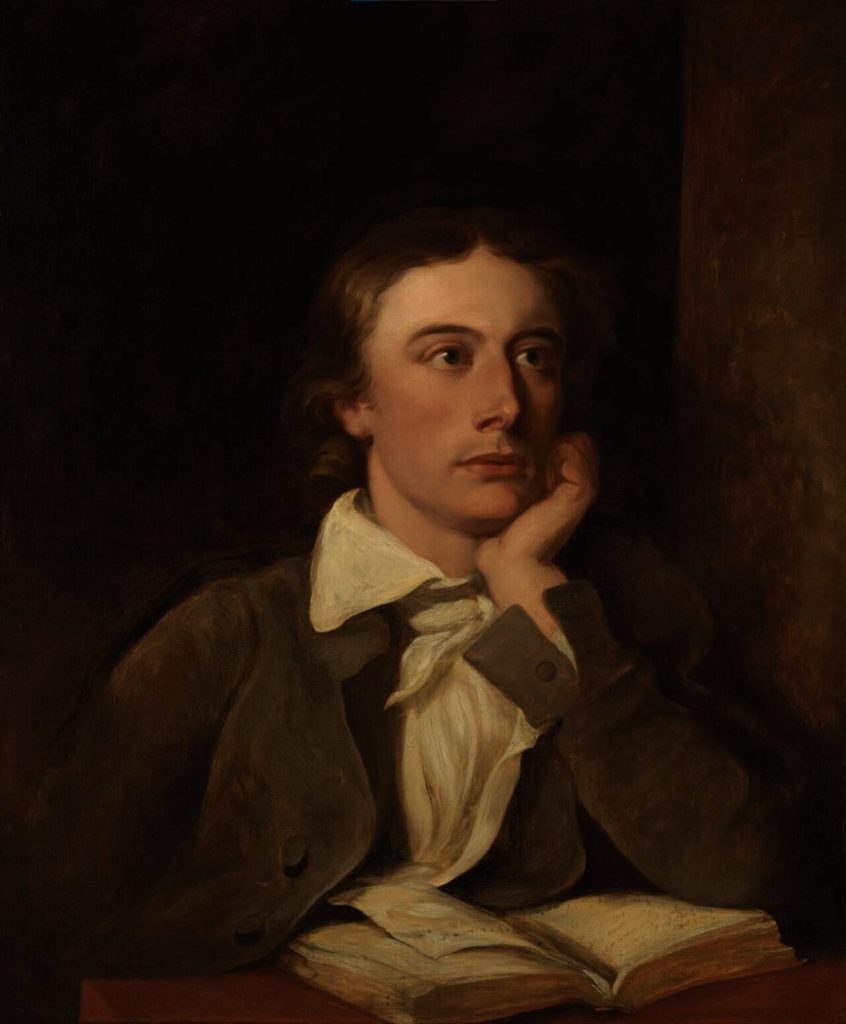This post was guest authored by Jason Boczar, Digital Scholarship and Publishing Librarian at USF Libraries.
This week is “Take your Poet to School” week, a week celebrating the reading, writing, and history of poetry across the globe. During the week, school children frequently bring a tiny version of their poet to school so that they can imagine the poet alive and in their world. I am a lifelong poetry fan, amassing volumes on top of volumes of poetry from the Epics to the Romantics, from Modernists to Confessional. And poetry can be defined quite broadly to include casual verses and contemporary songwriting. Poets themselves, like all artists, were at times conflicted individuals who made choices that can taint a reading of their work, making the person as compelling as the words they wrote. So, would it be best to choose a poet that has stood the test of time? A classic like Shakespeare or William Blake? Perhaps someone older like Rumi or Homer? I’m particularly fond of 20th century poets but that doesn’t solve my problem. One could choose any number of great poets: Philip Larkin or W. H. Auden or H.D. or Marianne Moore or Carl Sandburg or Robert Lowell or Elizabeth Bishop or… or…
There cannot be a right answer. So, weighing the person and the art, who would I take to work with me this week?
I’d bring the tragic Romantic poet John Keats.

John Keats was born in London, England on October 31, 1795. Keats is a cornerstone figure of most poetry surveys, and yet he only wrote poetry for four years before he died of tuberculosis at the age of 25. During those four years, Keats wrote poems that would be foundational to the Romantic era of poetry. Some of his most famous poems include Ode to a Nightingale and Ode on a Grecian Urn.
There is no shortage of poets that one could choose for “Take your Poet to Work.” Telling stories and sharing verses are in easy supply. But there is one main reason I’d like to hang out with Keats for a day: he died so young. Keats’ poems were not critically acclaimed during his short life. Keats did not die popular. From relative obscurity at the time of his death, the posthumous popularity of his work has resulted in their publications in almost any poetry anthology used in general courses.
So, if I could take a poet with me to work for a week, I would love to show John Keats the impact his work has had on poetry. Perhaps I would show Keats a website such as the Keats Foundation, although the existence of computers might require some explaining to my eighteenth-century friend. His fellow Romantic poet Percy Bysshe Shelley helped promulgate Keats’ works after Keats died, so it would only be fitting to show the Keats-Shelley Memorial Association. I would also show him the legacy of many of his fellow contemporaries like Mary Wollstonecraft Shelley, whose work has gone on to influence countless popular cultural adaptations. Also, while here, it would be very fun to show Keats his books of poetry on the shelf, like this wonderful book of poetry at the USF Tampa Special Collections… not to mention the amount of criticism written about romantic poets and Keats’ poems.

At the end of the week, we could record an oral history interview. Discussing things such as what Keats thinks about his popularity or what his thoughts are on some contemporary poems. A week wouldn’t be enough to dive into the many poetic movements since his death, but perhaps Keats could give some thoughts about some related movements like Confessional Poetry.
In a week, I hope that John Keats would write a few poems. These would be great additions to our Libraries’ Special Collections. It wouldn’t be unheard of for an artist to work with USF on something (remember Picasso?).
John Keats and I could pack in a full week if I took him to work. Unfortunately, humans haven’t figured out a way to bring people back from the dead. We’ll have to settle for appreciating his work by reading some poems or listening to somebody else read them for us.